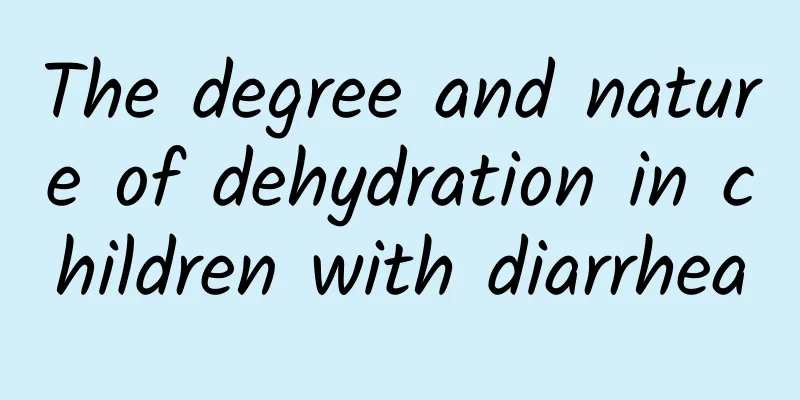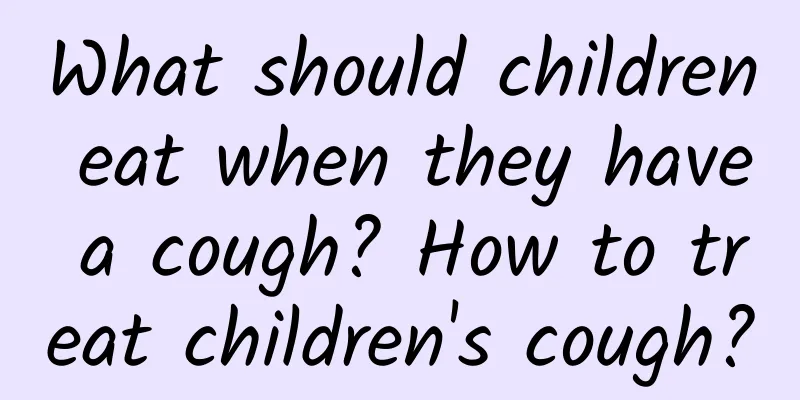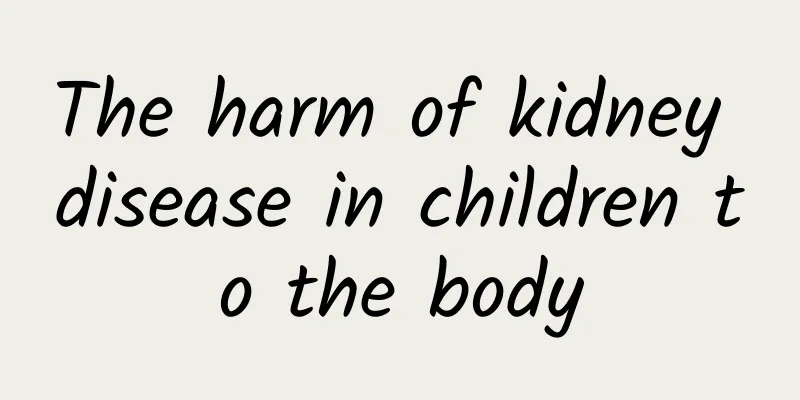The degree and nature of dehydration in children with diarrhea

|
When children have diarrhea and become dehydrated, appropriate treatment measures need to be taken according to the degree and nature of dehydration. Dehydration can be divided into mild, moderate and severe, and the nature can be divided into isotonic, hypotonic and hypertonic. Parents need to be alert to changes in symptoms of dehydration, seek medical attention in a timely manner and cooperate with doctors for targeted treatment. 1. Determination of the degree of dehydration Mild dehydration: Usually, the body fluid loss accounts for 3%-5% of body weight, which is manifested as mild thirst, normal skin elasticity, and slightly reduced urine output. At this time, oral rehydration salts (ORS) solution can be used for rehydration. The amount of rehydration is calculated according to the baby's weight, and 50-100 ml per kilogram of body weight is given in divided doses. Moderate dehydration: fluid loss accounts for 6%-9% of body weight, and symptoms may appear, such as dry lips, reduced skin elasticity, sunken eye sockets, and significantly reduced urine output. It is recommended to see a doctor as soon as possible, and the doctor will give intravenous fluid therapy according to the specific situation. Severe dehydration: Fluid loss accounts for more than 10% of body weight. Symptoms include mental depression, obvious dryness and lack of elasticity of the skin, decreased blood pressure, and near-anuria. This is an emergency and requires prompt medical attention. Dehydration is usually corrected through rapid intravenous rehydration. 2. Classification and response of dehydration properties Isotonic dehydration: The ratio of water to electrolytes is unbalanced, which accounts for most cases. It is recommended to use oral rehydration salts to supplement sodium, potassium and other electrolytes, and adjust the child's diet to choose liquid or semi-liquid foods that are easy to digest. Hypotonic dehydration: sodium loss is greater than water loss, which is common in children with malnutrition or severe infection. In this case, intravenous electrolyte supplementation should be performed in the hospital, and serum electrolyte levels should be closely monitored to avoid correction too quickly. Hyperosmotic dehydration: Water loss is greater than sodium loss, and the child will experience extreme thirst and neurological abnormalities, such as convulsions or confusion. Hyperosmotic dehydration requires slow fluid replacement to avoid cerebral edema, and treatment must be monitored by an experienced doctor throughout the process. 3. Home care and preventive measures During diarrhea, parents need to pay attention to their baby's diet, avoid greasy or high-fat and high-sugar foods, give them easily digestible rice soup, carrot puree and other foods, and gradually restore their diet to normal in stages. At the same time, pay attention to the baby's water intake, test urine volume and weight changes, and detect abnormalities in time. Avoid food contamination and strengthen hand hygiene in daily life. Diarrhea and dehydration in children can be life-threatening. Parents must pay attention to the degree and nature of dehydration and take reasonable and effective measures in a timely manner. If necessary, they should seek medical attention as soon as possible and let professional doctors provide targeted treatment to effectively correct the health problems caused by dehydration. At the same time, they should reasonably adjust their diet and hygiene habits to reduce the possibility of diarrhea. |
<<: Symptoms of Hirschsprung disease appear at a few months old
>>: What are the Chinese patent medicines for children with cold and runny nose?
Recommend
What should I do if my child has a recurring cough? Treatment of recurring cough in children
When children have recurrent coughs, medication c...
How to diagnose Kawasaki disease in children?
Many parents and friends should pay attention to ...
What are the auxiliary examinations for Kawasaki disease?
Many parents hope that their children can live a ...
What to do if your baby keeps coughing
Babies often have repeated coughing. In this case...
How to prevent baby diarrhea? What are the causes of diarrhea in children?
Pediatric diarrhea is a group of diseases mainly ...
How to prevent diarrhea in children
Diarrhea is a common gastrointestinal disease in ...
Should I stop breastfeeding if my baby has jaundice?
Should I stop breastfeeding if my baby has jaundi...
What to do if your baby coughs? Keep these cough medicines at home to be prepared
Coughs are divided into exogenous coughs and endo...
How to diagnose kidney disease in children
How to diagnose kidney disease in children? This ...
What are the symptoms of patent ductus arteriosus in newborns?
The main symptoms of patent ductus arteriosus in ...
Can children with acute laryngitis eat fruit?
Children can eat some fruits in moderation during...
Neurological examination of poliomyelitis
Polio is a common disease and an acute infectious...
What are the common tests for Kawasaki disease?
Regarding Kawasaki disease, there is a question t...
What should I do if my child keeps coughing? What should I eat if my child keeps coughing?
The most common way to relieve a child's pers...
Scientific examination of diarrhea in children
What are the examination methods for pediatric di...









